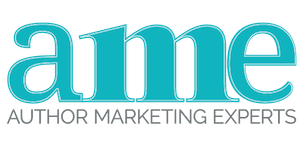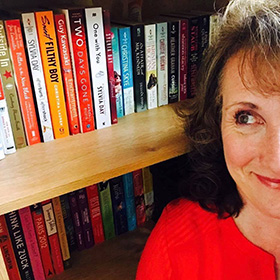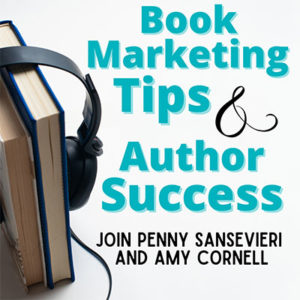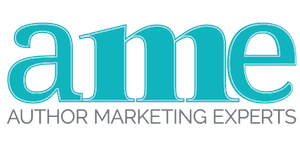Wouldn’t we all love to sell more books? I mean that’s the goal, right? The chasm between writing a book, publishing a book, and actually having a successful book marketing campaign is often wide and treacherous. A lot of the reason why so many authors have a hard time bridging the gap to book sales is this one simple thing: as writers you must know your reader, and many haven’t put in the time to build a reader profile.
Writing a book is such an awesome experience isn’t it? And we’re often told to “write the book we want to read.” Have you heard that before? If you have you’re not alone. The problem is, that advice is largely wrong. In fact, it’s the exact right thing to do in only two cases:
You are your reader. Meaning you are writing in the exact kind of genre you love and that’s all you read and you know your genre inside and out. You know your reader, period.
OR
You don’t care if anyone buys your book. Because I will tell you, if you don’t write for your reader, you’ll sell few, if any books.
Writing and publishing is a big endeavor, and you wouldn’t want it to go sideways just because you didn’t take the time to know your reader. And keep in mind that not every book will be spot on exactly what your reader wants to read. They might dislike one of your characters, or find a chapter or two irrelevant. But the majority of the book, 80% or more, should be spot on specific to the genre and the readers’ needs. Otherwise you’re wasting good book marketing dollars on a campaign for a book with minimal readership.
Understanding the Reader Experience
Do you remember the Apple Newton, McDonald’s Arch Deluxe Burger, Microsoft Bob or the New Coke? You might, if you were recalling some of the worst product launches in history. One thing that all of these products suffered from, was a lack of market research. And you’d be surprised how many books fall into this category as well.
Imagine building a new shop in a strip mall or opening up one in a bigger mall without doing any research. You have no idea if there is a market for what you’ll be selling, or if there are 9 other shops in that mall selling the exact same thing. Or what if you’re trying to sell something, for which there is no market? This happens to authors more than I can tell you. So what’s an author to do? It’s simple: know your reader. While the term “market research” may sound daunting (and expensive), it doesn’t have to be. Before you launch headlong into your book marketing, let’s take a look at some creative ways you can profile, and ultimately get to know your reader.
Profiling Your Reader and Getting to Know Who Will Buy Your Book
When I was first in business, a key part of what I did, for every book we promoted, was to build a reader profile. This reader profile was significant in that it showed us some super creative ways to market the book, but if you haven’t yet written the book, doing a Reader Profile can really help you to unearth reader preferences as well as pet-peeves, before you spend a lot of money on book marketing.
If you’d like to try out our Reader Profile, you can get it free here.
But what if your book is already out? Well, I’ve talked a lot about the book reboot, or book re-release. Read this blog post if you want to consider this!
A reader profile will really help get the creative juices flowing. Meaning you’ll start to realize things about your reader that you didn’t know. This may go beyond just reader preferences and may also lead you to fun and creative ways to market your book. For example, as you get to know your reader better, you may discover associations or newsletters that go out to thousands of your core readers. I did a reader profile once and got into the genealogy market with a memoir we were promoting and the fans of genealogy loved it, because of how the book was researched. One mention in this newsletter sold nearly 2,000 books. So a reader profile, both early on in your writing and as you are digging into your book marketing, can be a really helpful asset.
Knowing Your Specific Book Genre
This is kind of big, because I can’t tell you how many times I’ve spoken to authors who are looking for help with book marketing, and they’ve told me that their book does not fit one specific genre. Let me tell you: it needs to fit a genre. If you want to sell books, your book needs to fit a specific and existing genre. While you may be sitting in a main genre and potentially a sub-genre, there has to be one main area of focus. And it must be your biggest, most robust genre that you are writing for. That’s where your primary focus will be as you begin the book marketing process.
If you aren’t sure if your genre, or need some help figuring it out, a book coach or a good editor can probably help you. But you may want to go speak to a book store clerk first, because these folks know books and genres possibly better than anyone else.
How the Book Cover Plays into Your Reader Experience
Have you ever heard someone say “Oh my gosh, this looks like the kind of book I’d read?” If you have, you’re not alone. Most readers will either “vibe” with the cover, or they won’t. If you’re going to spend your valuable time and book marketing dollars on getting your book out there, you’d better make sure you have the kind of cover they’re looking for.
So where would you start? Well begin by looking up books in your genre. Each genre has a specific “look” to it, and it’s important to understand that because of how it ties into the psychology of your reader. Readers expect to see a certain “look” with book covers across particular genres. This doesn’t mean that they have to look identical, but there are some solid rules any good cover designer knows. It’s also why you don’t want to design your own cover, or have a designer who has never done book covers design one for you.
Study the Competition
We just talked about book covers, and appealing to your particular reader and genre, but what else can you glean information from? How about websites and social media? You can learn a lot from doing a small amount of research. As well, Facebook pages have some great data about who has “liked” a page, meaning the average (reader) demographic. Facebook groups are another great place to listen and learn. Some groups are reader and author based, while others are just readers. But if that’s not something you feel you have access to, here are a couple of other ways to easily do some reader research, too:
What Amazon Reviews Can Tell You About Your Reader
Book reviews will tell you a lot about what readers like and don’t like. Keep in mind that you can’t please all of the people, all of the time. And some reviews won’t be all that helpful, but I think you’ll find the majority of them will be. Reviews can help your reader profile by telling you what readers liked, what they didn’t like, or what they wanted to see more of. Books with lots of reviews can especially help you to better understand your reader. For example, a client we worked with had a cookbook and on her reviews, several of the reviews said they wanted more pictures. So a picture for each recipe, this is kind of a “thing” with folks who buy cookbooks and I think, if that’s what you’re publishing, it’s important to know that visuals are key to keeping readers happy.
Getting to Know the Amazon Also-Boughts
The Amazon also-boughts can be a treasure trove of information, too, if you’re looking to increase book sales. If you find five or so ideal books and you’re digging into their reviews, it’s also good to know what else your reader is looking at and Amazon will detail that in the also-boughts.
Sometimes you’ll see many similar books, but sometimes you won’t and this is helpful, too. For example, some of these also-boughts could lead you down a path of different reader preferences. For example if you’ve written a book about marketing your business, and you’re trying to better understand your reader, you might find that the also-boughts are showing a lot of books for the new business person. Books on starting a business for newly minted entrepreneurs, or “being in business for beginners” might be a sub-genre you really want to cater to for more book sales.
Why Hiring a Great Editor is Crucial for More Book Sales
It’s funny how a lot of people skip this part. They either self-edit or use the editing feature in Microsoft Word (cringe). I can tell you right now, if I had to skip any part of my book production, it would not be editing. A good content editor can help you polish a book and hone it to your specific market. So plunk down the money and find someone who can be an objective and critical eye on your book. If at some point, you don’t want to divorce your editor, they aren’t doing a good job for you. My editor pushes me to be better, to include things I hadn’t thought of, to address things she feels my reader will need or want – and yes, she knows the audience. So it’s also important to make sure that your editor knows your genre and reader profile, because a good content editor can help there, too.
Reading Other Books
Stephen King famously said that if you want to be a better writer, you need to be a better reader. When was the last time you read in your genre? If you don’t recall, or if you haven’t, then you should. I recommend reading a lot, actually. Reading does, in fact, help me become a better writer. It helps me to sharpen my skills, and expand my knowledge. It also helps me to think of things I hadn’t or wouldn’t have considered including in my book.
Why (most) Advertising Doesn’t Work
At the end of this journey, is the all-important book marketing. And while we all want more book sales, few authors actually get to sell more books because they don’t know their reader well enough to write the book they are trying to promote. And this is the biggest reason why your Facebook ads aren’t working, or your eBook promos, or whatever other advertisement-based book marketing you are doing. If your ads aren’t giving you a boost in book sales, or if people are clicking and not buying, there’s likely something wrong. But on the flip side, it could be that your book is great, but your ad-targeting is wrong. Which is another reason why knowing your specific reader profile, what they like and what they gravitate to, will save you a lot of money and time.
Book marketing doesn’t have to be hard. If you’ve done your homework and you know your reader, this is probably an easier journey. But if you don’t, or if you’ve discovered that you’ve been targeting the wrong group of readers, take heart. There is always something you can do. I mentioned the re-release a bit earlier in this piece. Sometimes it doesn’t have to be that drastic. For more book sales, maybe your book just needs a stronger book cover, or maybe your Amazon write up needs to be tinkered with, or strengthened.
As I mentioned last week, this month is all about fixing issues with the process from book discovery to buying. Because you can get discovery all day long, but earning those book sales is a bit harder. And if you want your book marketing to pay off, and you want to see some return on your investment, then you might need to take a second look at whether you’ve targeted the right reader, or perhaps missed the mark altogether.





0 Comments
Trackbacks/Pingbacks